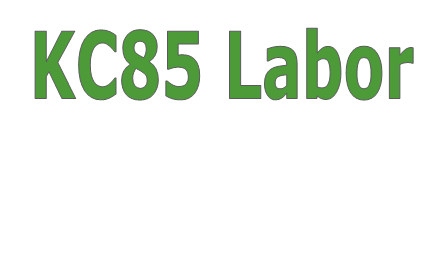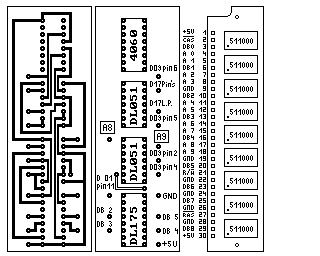- Details
- Geschrieben von Super User
- Hauptkategorie: Magazines
- Kategorie: CFOG's PIP
- Veröffentlicht: 30. November 1987
- Zugriffe: 20353
CFOG's PIP, January 1987, Volume 5 No. 3, Whole No. 51, page 11
More than Fair Share of Sharing
by Jim Holmes
I've paid a couple of visits to IBM user's groups in the past, to see what they did that was different. While my experience may be just a tiny sampling of the PC/MS-DOS community, I noticed that a lot of "sharing" of software was going on, and not just from the Public Domain, but commercial programs. I don't intend to sermomize, but I've been forced to think about this question as more of our own members replace their CP/M systems with one running PC/MS-DOS.
There hasn't been much "piracy" in CP/M user groups, though it has apparently been a problem within Apple groups, etc. I think the main reason we've been so exemplary is that our systems came with almost everything we needed and the supplemental programs we DID want were fairly reasonable, "worth the money". It's not the same at all within the IBM and "clone" world; there, you pay for everything, "a la carte" and the prices are several times more (for similar packages) than in CP/M. It's almost as if vendors are assuming that their program will be shared, raising prices to allow for it!
Whatever vendors think (or do), it's the responsibility of every group member to be certain piracy is kept out of our meetings. It is the least we can do for host organizations which provide our meeting places (and for our Board of Directors) since they could be liable if legal action should ensue from such practices. But what's worse, the real value of the group is subverted when this goes on: no one is interested in sharing ideas and expertise when they can get a "bootleg" copy of a program which might cost a few hundred dollars to acquire legally.
It's something like going to a party where a small percentage of the group is "into" drugs. At some point others become aware of this, and the party changes from an open, social situation to one where those "turned off" must leave and those who stay are focused on "maybe just this once" rather than each other. If you've never been to a party where drugs were offered so openly, think back to the last one you attended where everyone (but you) was drinking, fairly heavily. Had a great time, didn't you?
I don't want to be "my brother's keeper," or to defend practices the software vendors may be taking to protect themselves. I only want our groups to continue to provide those opportunities I've been so grateful for: sharing information, experience and ideas with people I enjoy, and who are working out similar problems.
CFOG's PIP, January 1987, Volume 5 No. 3, Whole No. 51, page 11
RESQ17 to the Resque: No More Lost Text Files!
by Benjamin H. Cohen
Sooner or later you'll be editing a text file you haven't saved and the computer will lock up. But all is not lost. "Programmer types" know that when the system locks up or 'crashes' the text file you've been working on that isn't on the disk is still out there in memory. And THEY know how to find the file and put it onto a disk. Well, bully for them! But those of us who wouldn't know a byte if it bit us can be in trouble, especially if there's a deadline and we have forgotten to hit ^KS for the past hour!
There have been some solutions in the public domain for a while. There's a program called Mage, though I saw a report that it wasn't public domain at one time it seems to be circulating as public domain software in a version 3.3 at present. Mage33 works fine, with WordStar files. When the system locks up you take your previously prepared disk that has Mage33 on it so that it autostarts with Mage33. You boot the system and Mage33 saves your text. Neat-o. But supposing you were using the Turbo Pascal editor. Oh, well.
Savestar, originally published in Profiles, the Kaypro magazine, works with the Turbo Pascal editor, too. The problem is, simply put, that different editors put the text in different places in memory, and you need to know where the text begins or you'll get a lot of binary encoded junk. Savestar has different versions that know where the text starts for different programs.
But since Mike Yarus of Boulder, Colorado, wrote RESQ, you don't have to do any of that, all you have to do is use RESQ. Version 1.7 is, as of this writing, the latest known to me. When you boot your system with RESQ17, you are prompted to enter a string of text that's in your file that you want to rescue. A single well chosen word ought to be enough. RESQ searches sequentially through memory until it finds your string. RESQ then asks if the file you'll then see part of on the screen, is the one you're looking for. Answer "Y", and RESQ backs up to the marker that shows the beginning of the file and begins saving. Answer "N" and RESQ continues searching. When RESQ starts saving, it prompts you to hit a key when you see the end of the file flash by. When that's done you'll find your text in the file RES.Q. Full instructions are found in a short document file in the RESQ17.LBR.
Sorry, VDE users, RESQ may not work with VDE because of the compression technique used to store files while working.
As Yarus says, "Good luck; but you'll need less luck if you have RESQ."
- << Zurück
- Weiter




